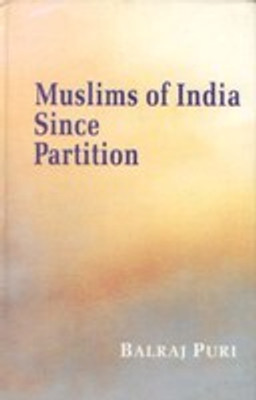Muslims of India Since Partition(Paperback, Balraj Puri)
Quick Overview
Product Price Comparison
About The Book: After 1947, Muslims of India, acquired a different form, in terms of their role, status, problems, challenges and opportunities. The partition of the country divided them in two and later three parts and led their political, bureaucratic and intellectual elite to migrate to Pakistan. The expert opinion was divided about their very future. W.C. Smith, a renowned scholar of Islam, for instance, believed that ŌĆ£Islam in India would emerge as more progressive, dynamic, liberal and creative than Pakistani IslamŌĆØ. The fact that Muslims in India bear the same proportion in Indian Population as those in the world bear to the world population, make their experience of universal value. Religion has two components. One is set of theological beliefs and practices. Two as a basis of a social identity. Even those who do not follow its beliefs and practices and are agnostics or atheists are an integral part of a religious community. This book is primarily a study of Muslim community since partition. But some references to prepartition lessons and Islam, based on its acknowledged authorities, were inevitable for the study of contemporary problems of the community. This study of micro problems of Indian Muslims is a humble contributioin to the vastly grown scholarly work on macro Islam. About The Author: Balraj Puri, started his public career in 1942 as editor of a Urdu weekly in Jammu. He has written over a thousand articles and authored or coauthored around forty books. Intercommunity relations and problems and potentialities of Muslims in India have been a matter of his special interest, as a social and political activist as also a writer. Apart from intervening in many conflict situation, he has been extensively writing on these subjects for national dailies and academic journals and addressed many academic gatherings. He has been interacting with Muslim scholars and leaders of the country belonging to various scholars of thought. He is vicepresident of the Minori


